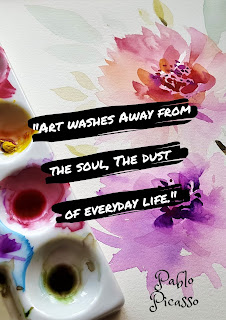Comparative Judgement - What Next?
This is the final post in a series of three in which I have reflected on my experience of trialling comparative judgmement as a way of assessing children's writing.
After the second period of remote learning, writing soon emerged as the skill that had taken the biggest 'hit' for a majority of our children. The complexity of writing, and its range of constituent sub-skills meant that to address the issue as a whole, we had to support the development of each part.
As a junior school and a very small primary, most of our children are of junior age. For those who were already in Y3 or above prior to the pandemic, writing stamina and spelling needed to improve, whilst for the younger children, fine motor skills and handwriting were additional areas for our focus.
We had already begun to use a new handwriting scheme in September 2020, following the first period of remote learning, but after further disruption, we went back to the beginning with all year groups. Teachers in junior classes set up fine motor skills activities, such as Finger Gym, and some also used Dough Disco. We compiled our own phonic-based spelling scheme, based on one shared by Sophie Bartlett and her colleague Rebecca (@ReBuckEdu), and we introduced 'Writing for Pleasure' books to build confidence and stamina, and encourage creativity.
All of the above had a positive effect but we were noticing a further issue that was a barrier to the children being able to communicate accurately and effectively in their writing: sentence composition skills were a weakness for a significant number of children. Alex Quigley, in a blog based on his book, Closing The Writing Gap, captures what we needed to do:
“Instead of tackling lots of different genres and undertaking lots of error-strewn ‘big-writes’, we should be explicit in deliberately practising crafting great sentences.”
In September 2022, when we began our trial of using No More Marking's comparative judgement tool to assess writing, some teachers in Y3 and Y4 were already beginning to focus mainly on sentence level work in the teaching of writing. Using ideas from The Writing Revolution children were taught that sentences need a 'subject and action', and they practised identifying these. They also distinguished between sentences and fragments, corrected jumbled sentences, re-wrote sentences with correct spacing between words, and completed sentences with missing words. They then wrote their own sentences based on a picture prompt (e.g. from https://www.onceuponapicture.co.uk/), a class reading text or on their learning within different AoLEs. Progress was gradual but noticeable, and required persistence, consistency and rigour in teaching.
As expected, the results from the comparative judgement trlal also showed that a significant number of children in Years 3 to 6 were not routinely producing accurate sentences, and that this was an area we needed to tackle more purposefully as a whole federation.
As a result, I am putting together a progression in sentence writing, along with a teaching toolkit. I plan to consult with colleagues from our feeder infant school and cluster high school, in the autumn, to ensure that the progression document applies across phases.
Along with the books and blog mentioned above, I am very grateful for these very useful resources and helpful blogs:
https://auth.completemaths.com/login (create a free account and then click on 'English')
https://mrnickhart.wordpress.com/2020/02/16/9-ways-to-put-sentences-at-the-heart-of-the-curriculum/
https://rebuckedu.wordpress.com/2021/03/15/the-writing-revolution-in-lks2/
https://www.alanpeat.com/?post_type=product
Sentence progression shared by Oakwood Primary, Southampton
We have also used the data from the NMM trial to identify groups of children with writing ages more than 1 year below their chronological age. They will receive additional support in class, and their progress will be monitored termly through independent writing assessments.



Comments
Post a Comment